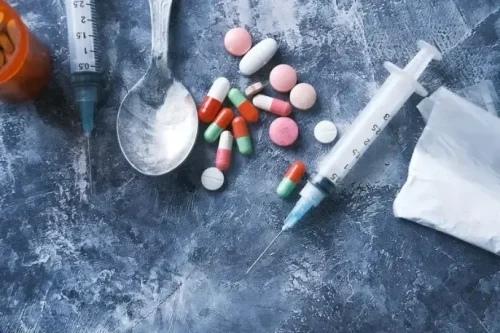
The prevalence of alcohol-use disorders declines with increasing age, but the rate of detection by health professionals may be underestimated in older people because of a lack of clinical suspicion or misdiagnosis (O’Connell et al., 2003). Nevertheless, the proportion of older people drinking above the government’s recommended levels has recently been increasing in the UK. The proportion of men aged 65 to 74 years who drank more than four units per day in the past week increased from 18 to 30% between 1998 and 2008 (Fuller et al., 2009). In women of the same age, the increase in drinking more than three units per day was from 6 to 14%. Also, as noted earlier, alcohol-related admissions to hospital increase steeply with age although the prevalence of heavy drinking is lower in this group. This may partly reflect the cumulative effects of lifetime alcohol consumption as well as the general increasing risk of hospital admission with advancing age.
- Whether you care for youth or adults, you are likely to encounter patients with alcohol use disorder (AUD) regularly in your practice.
- Another would be a college student who repeatedly has trouble making it to class because she was drunk the night before.
- And these communities make the person with an alcohol addiction accountable and provide a place to turn to if there is a relapse.
- Given the diverse and widespread neuroadaptive changes that are set in motion as a consequence of chronic alcohol exposure and withdrawal, it perhaps is not surprising that no single pharmacological agent has proven to be fully successful in the treatment of alcoholism.
Alcohol-Use Disorders: Diagnosis, Assessment and Management of Harmful Drinking and Alcohol Dependence.

Further, in view of changes in metabolism, potential drug interactions and physical comorbidity, dosages for medications to treat alcohol withdrawal and prevent relapse may need to be reduced in older people (Dar, 2006). People who are alcohol dependent and who have recently stopped drinking are vulnerable to relapse, and often have many unresolved co-occurring problems that predispose to relapse (for example, psychiatric comorbidity and social problems) (Marlatt & Gordon, 1985). This should include interventions aimed primarily at the drinking behaviour, including psychosocial and pharmacological interventions, and interventions aimed at dealing with co-occurring problems. Although https://ecosoberhouse.com/ is defined in ICD–10 and DSM–IV in categorical terms for diagnostic and statistical purposes as being either present or absent, in reality dependence exists on a continuum of severity. Therefore, it is helpful from a clinical perspective to subdivide dependence into categories of mild, moderate and severe. People with mild dependence (those scoring 15 or less on the Severity of Alcohol Dependence Questionnaire [SADQ]) usually do not need assisted alcohol withdrawal.
Understanding Alcohol Use Disorder

For example, antidepressants, if someone with an alcohol addiction were self-medicating to treat their depression. Or a doctor could prescribe drugs to assist with other emotions symptoms of alcohol dependence common in recovery. By Buddy TBuddy T is a writer and founding member of the Online Al-Anon Outreach Committee with decades of experience writing about alcoholism.

Social Support and Treatment Programs
Addiction psychiatrists also have an important role in liaison with general psychiatrists in the optimal management of people with alcohol and mental health comorbidity (Boland et al., 2008). As noted above, many people will recover from alcohol-use disorders without specialist treatment and many will reduce their alcohol intake following a change in circumstances, such as parenthood, marriage or taking on a responsible job. Hazardous and harmful drinkers may respond to a brief intervention provided in primary care without requiring access to specialist treatment (NICE, 2010a). For others, their alcohol problems are overcome with the help of a mutual aid organisation, such as Alcoholics Anonymous (AA; see Section 2.10). Nevertheless, many will require access to specialist treatment by virtue of having more severe or chronic alcohol problems, or a higher level of complications of their drinking (for example, social isolation, psychiatric comorbidity and severe alcohol withdrawal).
More in The Road to Recovery with Alcohol Dependence
- There are several organisations available in England to provide mutual aid for service users and their families.
- Clinicians therefore need to be vigilant to identify and treat older people who misuse alcohol.
- It can be difficult to know whether or not to abstain from alcohol to support a loved one in recovery.
- Data from the US National Comorbidity study demonstrated that the majority of lifetime disorders in their sample were comorbid disorders (Kessler et al., 1996).
- Alcohol also increases the risk of death from car crashes, injuries, homicide, and suicide.
- Substance use frequently co-occurs with mental illness, but some research suggests that psychiatrists only treat addiction for around half of the patients who have both mental illness and substance use problems.
Drinking releases endorphins which can lead people to feel happy, energized, and excited. But alcohol is also classified as a depressant and can cause fatigue, restlessness, and depression. It may shift from stimulant to sedative in line with whether blood alcohol content is rising or falling. Given the power of alcohol on the brain, people who drink heavily may come to rely on it to regulate their mood. The idea that altered forms of consciousness such as mania or alcohol can enhance creativity is a popular belief. Researchers found that participants who had a few drinks were better and faster at creative problem solving than their sober counterparts.
12.2. Current service provision for children and young people

- If you regularly drink as much as 14 units per week, it’s best to have three or more drink free days each week.
- If you think you may be dependent on alcohol, you should consult your doctor or another medical professional before stopping drinking.
- In addition, 21% of adult men and 14% of women met the government’s criteria for binge drinking.
- Although psychiatric comorbidity is common in people seeking help for alcohol-use disorders, this will usually resolve within a few weeks of abstinence from alcohol without formal psychiatric intervention (Petrakis et al., 2002).